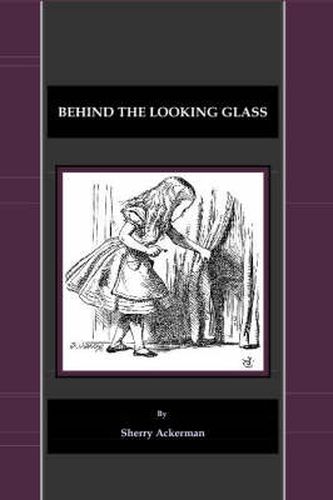Readings Newsletter
Become a Readings Member to make your shopping experience even easier.
Sign in or sign up for free!
You’re not far away from qualifying for FREE standard shipping within Australia
You’ve qualified for FREE standard shipping within Australia
The cart is loading…






Behind the Looking Glass offers a fresh perspective in the ongoing, contemporary deconstruction of the Carroll Myth. Through rigorous examination of numerous myths that have been hitherto unquestioned, Ackerman skillfully positions Lewis Carroll in the theological and philosophical contexts of his time. She uncovers a Carroll whose radical religio-philosophical counter-response to patriarchal materialism moved his intellectual journey, intentionally or otherwise, deep into the waters of mysticism. The image of Carroll as a dreary Victorian conservative gives way to that of a man with wide intellectual parameters, an inquiring mind and bold, far-sighted vision.Behind the Looking Glass demonstrates how nineteenth century currents of spiritualism, theosophy and occult philosophy co-mingled with Carroll’s interest in revived Platonism and Neoplatonism, showcasing the Alice and Sylvie and Bruno books as unique points of conjunction between Carroll’s intellect and spirituality. The scholarship in this work, while rigorous, is softly mixed with the kind of academic frivolity that Carroll himself might have enjoyed. Ackerman exposes a Carroll who, having lost belief in the theological and mythological master plots of earlier eras, turned toward the imaginative fiction of wonderlands rife with philosophical content in response to his instinctive hunger for cosmic coherence and existential order.
$9.00 standard shipping within Australia
FREE standard shipping within Australia for orders over $100.00
Express & International shipping calculated at checkout
Behind the Looking Glass offers a fresh perspective in the ongoing, contemporary deconstruction of the Carroll Myth. Through rigorous examination of numerous myths that have been hitherto unquestioned, Ackerman skillfully positions Lewis Carroll in the theological and philosophical contexts of his time. She uncovers a Carroll whose radical religio-philosophical counter-response to patriarchal materialism moved his intellectual journey, intentionally or otherwise, deep into the waters of mysticism. The image of Carroll as a dreary Victorian conservative gives way to that of a man with wide intellectual parameters, an inquiring mind and bold, far-sighted vision.Behind the Looking Glass demonstrates how nineteenth century currents of spiritualism, theosophy and occult philosophy co-mingled with Carroll’s interest in revived Platonism and Neoplatonism, showcasing the Alice and Sylvie and Bruno books as unique points of conjunction between Carroll’s intellect and spirituality. The scholarship in this work, while rigorous, is softly mixed with the kind of academic frivolity that Carroll himself might have enjoyed. Ackerman exposes a Carroll who, having lost belief in the theological and mythological master plots of earlier eras, turned toward the imaginative fiction of wonderlands rife with philosophical content in response to his instinctive hunger for cosmic coherence and existential order.